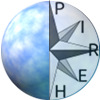Contact
Christine Lebeau
Université Paris 1
Christine.Lebeau@univ-paris1.fr
Jakob Vogel
Sciences Politiques de Paris
Petra Overath
Universität zu Köln

Euroscientia
Space and circulation of state-knowledge (savoirs d'État) in Europe, 1750-1850
The research network EUROSCIENTIA brings together a group of French and German scholars specializing in the history of science and scientific knowledge in various fields. The research focuses on the constitution as well as institutionalisation of state related knowledge in a number of institutional contexts between c.1750 and 1850. The concept of state related knowledge (staatliches Wissen, savoirs d’Etats) comprises different fields of knowledge, which were either shaped or remodelled by the state and state related actors between the mid eighteenth and mid nineteenth century. A key research interest is the transformation from the Enlightenment republic of letters towards a primarily nationally defined field of science, though one that encompassed transnational contacts as well as international relations.
Space is thus a key concept in the group’s research and has a two-fold function. On the one hand space refers to an abstract topology of different disciplines and fields of science. On the other space allows for the analysis of concrete relations between actors, their geographical location as well as the circulation of knowledge and networks. In terms of chronology, a key area of interest is the Napoleonic era and how the territorial changes around 1800 impacted on the construction and circulation of state related knowledge and science.
The Franco-German dimension of the project allows for perspectives of different scope and distance. On the one hand it takes into account the distance between institutions as well as different practices of science. On the other the Franco-German point of departure allows for the analysis of the relative territorial and political proximity. Beyond the Franco-German perspective the project seeks to integrate broader European and non-European relations. The research network is based on regular workshops, seminars as well as meetings for PhD students. Research results will be published via open access via the project’s web page. Furthermore, key results will be published in a dynamic, interactive cartography of state related knowledge in Europe. Lastly, an edited volume in English will sum up some of the key research results.
Our partners provide substantial scientific and technical support to our historical information system: Julien Alerini (PIREH), Benjamin Deruelle (Université de Lille 3), Stéphane Lamassé (PIREH) and Charlotte Hug (CRI), Rébecca Deneckère (CRI), Camille Salinesi (CRI) 

The research project "Euroscientia" is financed by the Agence Nationale de la Recherche and the Deutsche Forschungsgemeinschaft. The partner institutions of the project are the University Paris 1 Panthéon-Sorbonne, Centre de la Recherche en Histoire Moderne and the University of Cologne, Historical Institute.
NEWS
Final Conference
Paris, september 18-20, 2014
more information
Presentation of the project results
Centre Marc Bloch![]() Berlin, june 2, 2014
Berlin, june 2, 2014
Workshop
"Imperial Circulation of State Knowledge (savoirs d'État). Europe and the Non-European World in the 18th and 19th Centuries"
Cologne, march 21, 2014
programme
Lecture by Lothar Schilling :
« État et expertise : la problématique des “savoirs d'État” à l'époque moderne »,
discussion : Pascale Laborier
Paris, march 17, 2014 2.30 PM
more information
Report of our conference
"Nommer et classer les savoirs d' État, 1750-1850"
Jean-Luc Chappey, Ordres et désordres biographiques. Dictionnaires, listes des noms et réputation des Lumières à Wikipédia. Seyssel, Champ Vallon, coll. La chose publique, 2013
More information....
Isabelle Laboulais
La Maison des mines.
La genèse révolutionnaire d’un corps d’ingénieurs civils (1794-1814).
Presses universitaires de Rennes 2013
More information


 ENT
ENT
